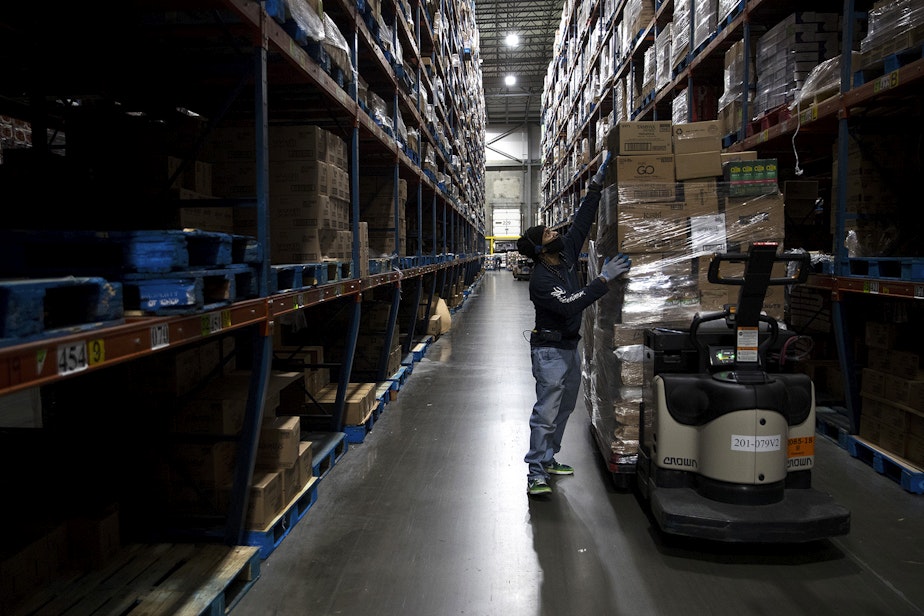Washington grocery workers 'begging' for more hours as wages don't keep up with bills

Many grocery workers are running out of food at home and aren’t earning enough to make rent.
That's according to a new study from the Economic Roundtable, a non-profit research organization. These findings are based on a survey of more than 36,000 Kroger workers in four states, including Washington.
Kroger, however, argues otherwise.
In a statement, representatives for Fred Meyer and QFC contested the Economic Roundtable’s findings, calling them misleading. They say the companies pay associates more than their peers in the industry.
But the survey mirrors Cindy Wilbur’s experience.
Wilbur, 51, works part time at a Fred Meyer in Federal Way, and says she is months behind on rent and bills.
She says she often has to choose between feeding herself or her dog.
“I always choose to feed him before I feed myself, you know," she says. "I’ll go for a 20-cent bag of Top Ramen for the night. Not real healthy, but it settles the stomach.”
Sponsored
When she started at the store during the pandemic, Wilbur was earning $13 an hour. She says she now gets just over $18 an hour. But at part-time, that still doesn't cut it.
“We are literally begging them, begging them, 'please give me more hours,'" she says. "The hours aren’t there. But they hire new people, and they do it because they can bring [new people] in at $13 an hour.”
She's tried to make up the difference elsewhere, too. Wilbur says it’s hard to find a second job, though, because her schedule at the store changes week to week.
The Economic Roundtable survey noted that very low food security is a predictor of homelessness. About 44% of respondents said they are unable to pay rent, and 36% worry about eviction. A total of 14% report being homeless now or have been in the past year.
Fred Meyer and QFC released their own analysis this week, highlighting an average hourly rate of $18.27. According to its own analysis, Kroger employs more than 21,000 people in Washington state; about 77% are part-time, and about 97% are hourly workers.
Sponsored
Kroger's analysis does note benefits some part-time workers have received in addition to their hourly wages.
According to the report, from March 2020 to November 2021, Kroger paid part-time "frontline associates" $1,170 "in the form of store credit, cash bonuses, additional pay, fuel points bonuses, and vaccine incentive payments." Full-time workers received $1,730, according to the company's report.
Still, they're not enough to keep up with rising cost of living — 67% of workers in the Economic Roundtable survey say they do not earn enough to pay for basic monthly expenses.
Wilbur notes while she's in a tough financial situation, she has coworkers who are worse off than her.


